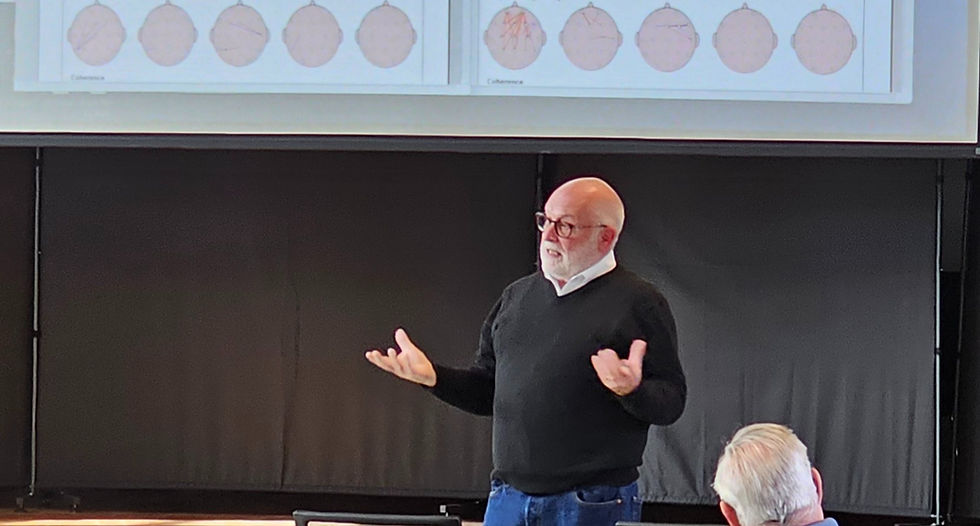BEING LOVED ANOTHER WAY
- MARJORIE FERGUSON
- Nov 18, 2023
- 3 min read
I grew up in an abusive home. My mom was arrested for breaking my leg. She threw a vacuum at me. As a child on any given day, I could have the 'good' mom and then the 'bad' mom. It was terrifying. I started CBT trauma therapy in college and continued it for 32 years. Tried Reiki and Native American Healing Rituals until I was able to function at work. I even fell in and out of, what I considered, 'love'.
Despite their best efforts, I never fully felt at home in my own skin. I wanted to not have to sift through and filter all my thoughts before sharing. I didn't know where the selfish boundaries were supposed end, and the altruistic giving began. I longed to be liberated. I trust people I shouldn't trust and anyway, I have no clue as to how to decipher the different levels of trust that develop as people grow into adulthood.
And then, years into my recovery, I found one of my friends relaxed and happy. My first thought was that her medication had been changed, but, no, she revealed that she had found EMDR, Eye Movement Desensitization Response. With a few disappointing starts with some therapists who were not a fit, I found a skilled clinician. It's an odd therapy for someone who is used to talking and listening because you have to trust your own brain to find the pathology and then find the path of reason and healing. Of course, the clinician helps with reframing as necessary while your brain is still organizing itself to combine the right side of creativity with the left side of reason.
And then, after three years of EMDR, I felt liberated. I could be a normal person and have a snit without reliving it over and over again, I could belly laugh and be funny. But most important of all, I could laugh at myself and forgive myself. It almost happened overnight, even though I know the work was being completed over a longer period of time, but I suddenly knew the answer to the question every single one of my therapists and sponsors had asked, 'why do you still hold onto your mother like a little kid?' Now, I could reach out and love her without dictating the terms of how I was treated.
For someone that had been urged to set boundaries with her (I had set them) and someone who had been urged to accept her the way she was and couldn't do (I always reverted back to victim), I could accept her as she was, forgive her and keep her in my life without changing who she really was in my head. The delusion was gone, and she was real, but I wasn't looking at her as the child I was any more. EMDR let me process it all and put down the cape of victimhood.
I could love and accept someone as who they were without making demands upon them, ultimately, I gave up the boundary idea because I can't control people. I wanted to for decades, but the reality is I can't, So I had a choice. She could stay with all her flaws and mental illness and be loved just the way she was or be shut out of my life. I chose the former and find peace in my taking the responsibility to choose my people.




Comments